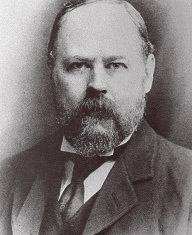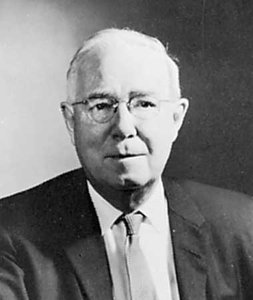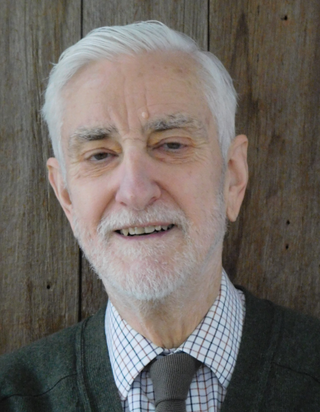Related Research Articles

John Milford Rutter is an English composer, conductor, editor, arranger, and record producer, mainly of choral music.

Basil Harwood was an organist and composer in the English church music tradition, best known today for his liturgical works, particularly his anthem O How Glorious is the Kingdom (1898) and his Service in A flat (1892), which still remain popular in English churches. He wrote numerous hymn tunes, several of which became well-known including Luckington and Thornbury ("O Jesus I Have Promised" and "Thy hand, O God, has Guided").
William James Mathias CBE was a Welsh composer noted for choral works.
Herbert Whitton Sumsion was an English musician who was organist of Gloucester Cathedral from 1928 to 1967. Through his leadership role with the Three Choirs Festival, Sumsion maintained close associations with major figures in England's 20th-century musical renaissance, including Edward Elgar, Herbert Howells, Gerald Finzi, and Ralph Vaughan Williams. Although Sumsion is known primarily as a cathedral musician, his professional career spanned more than 60 years and encompassed composing, conducting, performing, accompanying, and teaching. His compositions include works for choir and organ, as well as lesser-known chamber and orchestral works.

Harold Edwin Darke was an English composer and organist. He is particularly known for his choral compositions, which are an established part of the respertoire of Anglican church music. Darke had a fifty-year association with the church of St Michael, Cornhill, in the City of London.

Leo Salkeld Sowerby was an American composer and church musician. He won the Pulitzer Prize for music in 1946 and was often called the “Dean of American church music” in the early to mid 20th century.
Sir Richard Runciman Terry was an English organist, choir director, composer and musicologist. He is noted for his pioneering revival of Tudor liturgical music.
Kenneth L. Jennings was an American choral conductor and composer. He was the Harry R. and Thora Helseth Tosdal Professor of Music Emeritus and Director Emeritus of the St. Olaf Choir. He was a published arranger, composer, and choral music educator.
Percy William Whitlock, was an English organist and post-romantic composer.
Eric Harding Thiman was an English composer, conductor and organist. The surname is pronounced 'tea-man'. By 1939 he was considered one of the leading non-conformist organists in England. His choral and educational music is still performed today.
David John Chandler Price is a British choral conductor and organist.
Ronald Geoffrey Corp, is a composer, conductor and Anglican priest. He is founder and artistic director of the New London Orchestra (NLO) and the New London Children's Choir. Corp is musical director of the London Chorus, a position he took up in 1994, and is also musical director of the Highgate Choral Society.

Kenneth Leighton was a British composer and pianist. His compositions include church and choral music, pieces for piano, organ, cello, oboe and other instruments, chamber music, concertos, symphonies, and an opera. He had various academic appointments in the Universities of Leeds, Oxford and, primarily, Edinburgh.
Bernard Clements Barrell was an English musician, music educator and composer.

"Vom Himmel hoch, da komm ich her" is a hymn text relating to the Nativity of Jesus, written by Martin Luther in 1534. The hymn is most often sung to the melody, Zahn No. 346, which first appeared in a 1539 songbook and was probably also composed by Luther. This classic Christmas carol remains popular and has inspired many choral and organ works by other composers.

"O Lamm Gottes, unschuldig" is an early Lutheran hymn, with text and melody attributed to Nikolaus Decius. Originally intended as a German version of the Latin Agnus Dei, it was instead used as a Passion hymn. In both contexts, the hymn has often been set to music, prominently as the cantus firmus in the opening chorus of Bach's St. Matthew Passion. It is included in most German hymnals, and has been translated by Catherine Winkworth, among others.
Camil Anton Johan Van Hulse was a Belgian-American pianist, organist, teacher, and composer.

Derek Edward Healey is an English composer whose compositions include an opera, a Requiem, orchestral, chamber, choral and organ works. Music is published in the UK, USA, Canada and Germany.

Olle Elgenmark was a Swedish organist and composer.
References
- 1 2 Humphreys, Maggie; Evans, Robert (January 1997). Dictionary of Composers for the Church in Great Britain and Ireland. A&C Black. ISBN 9780720123302 . Retrieved 5 July 2015.
- ↑ International Who's who in Music and Musicians' Directory. Melrose Press. 1988.
- ↑ "School of the Black And Red", by Andrew Underwood (1981); reset and updated by Peter Boon, Paul Middleton and Richard Wildman (2010)
- ↑ God be in my head – Choral works by Paul Edwards REGCD339
- ↑ No Small Wonder, Music for Christmas and Remembrance by Paul Edwards; The Concord Singers, 2001, LAMM 139D
- ↑ Charlotte Fone in interview with Paul Edwards in Two Countries: One Heart. A collection of essays about Slovak and British music; BHS, Bedford Charity, 2005